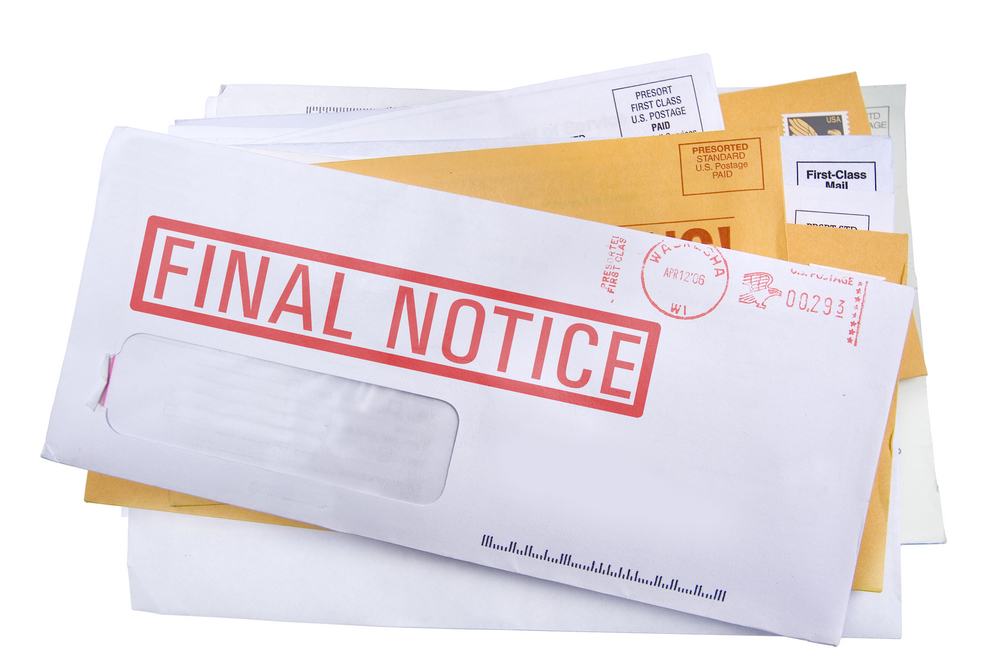Ever found yourself face-to-face with a Notice of Default? To put it simply, a Notice of Default is a lender’s initial step toward foreclosure, but understanding it helps you navigate the process and protect your financial future.

What is a Notice of Default?
A Notice of Default is a public notice filed with a state court that legally kickstarts the process of foreclosure. NOD requirements and procedures will vary based on the specific state regarding whether or not they impose a non-judicial or judicial foreclosure process. They are generally posted on the property (on a front door or window) to notify the borrower of a mortgage that they are in default on a loan. Borrowers might default on a loan because they’ve fallen behind on mortgage payments, requiring the bank to take legal steps to receive those payments or see their investments resolved. A NOD is filed by lenders once their investments go into default status, and is recorded against the property itself.
After a NOD is filed and foreclosure actions are documented and taken, credit bureaus are notified. Foreclosure proceedings and actions may impact a borrower’s credit score negatively, which is bad news for any future mortgage or loan applications. The NOD will include many crucial details, most importantly, the time the borrower has to pay the outstanding balance before the lender seizes the property. Every NOD will include applicable information surrounding the property, typically such as:
- The name and address of the borrower
- The name and address of the lender
- The property’s legal address
- The actions required to cure the default
- The deadline
- Details on the lender’s actions if the deadline passes without resolution
How Does a Notice of Default Work?
If borrowers wish to avoid experiencing their lender activate the lien and potentially seize collateral for foreclosure, they must understand how NODs work to take the appropriate steps. NODs need to be taken seriously, as your lender is already taking the situation seriously by issuing one. The lender will specify what actions have breached the original mortgage contract, detailing the number of delinquent payments permitted in the contract before a NOD is filed. Typical mortgage contracts will permit a window, usually 180 days, of missed payments before they will take action to file a NOD.
Realistically, if a borrower has received a NOD, it’s not a sudden surprise. There has been a pattern of missed payments that would signal a NOD to be filed. In terms of the chain of events, after the NOD is filed, a lender will activate the perfected lien recorded with the mortgage closing, later seizing collateral for foreclosure. Once this happens, the lender can take legal action to ask the borrower to vacate the home or property. Each NOD is unique, so occasionally, the lender will allow the borrower to negotiate by paying off the debt or settling. Each case varies.
What Does a Foreclosure Notice of Default Mean for Borrowers?
While most NODs lead to foreclosure, exceptions exist. Lenders aim to minimize risk so they automate many NOD filings. However, if you have a long-standing relationship with your lender, they may file the NOD as a formality but be open to flexibility and alternatives. Negotiating the repayment window or finding ways to catch up on payments could be possible. Some NODs offer a grace period for negotiation before foreclosure proceedings. If they serve a Notice of Intention instead of an NOD, it grants more time for discussing solutions. In such cases, the lender may file the NOD to initiate discussions on bringing the mortgage up to date rather than immediately pursuing foreclosure. Understanding these possibilities can alleviate financial worries.
Avoid Foreclosure and Sell Your Home Fast with A-Team!
Borrowers faced with a looming NOD should begin by carefully examining the official complaint, taking note of payment windows and breaches of the mortgage contract. Contact your lender to begin a potential negotiation, as no one wants to deal with the consequences a foreclosure could create. If you think the best option is to sell your home, you’re in luck. A Team specializes in cash AS-IS offers and can close quickly! Just give us a call at 855-66A-TEAM (855-662-8326) or fill out our contact form here!
